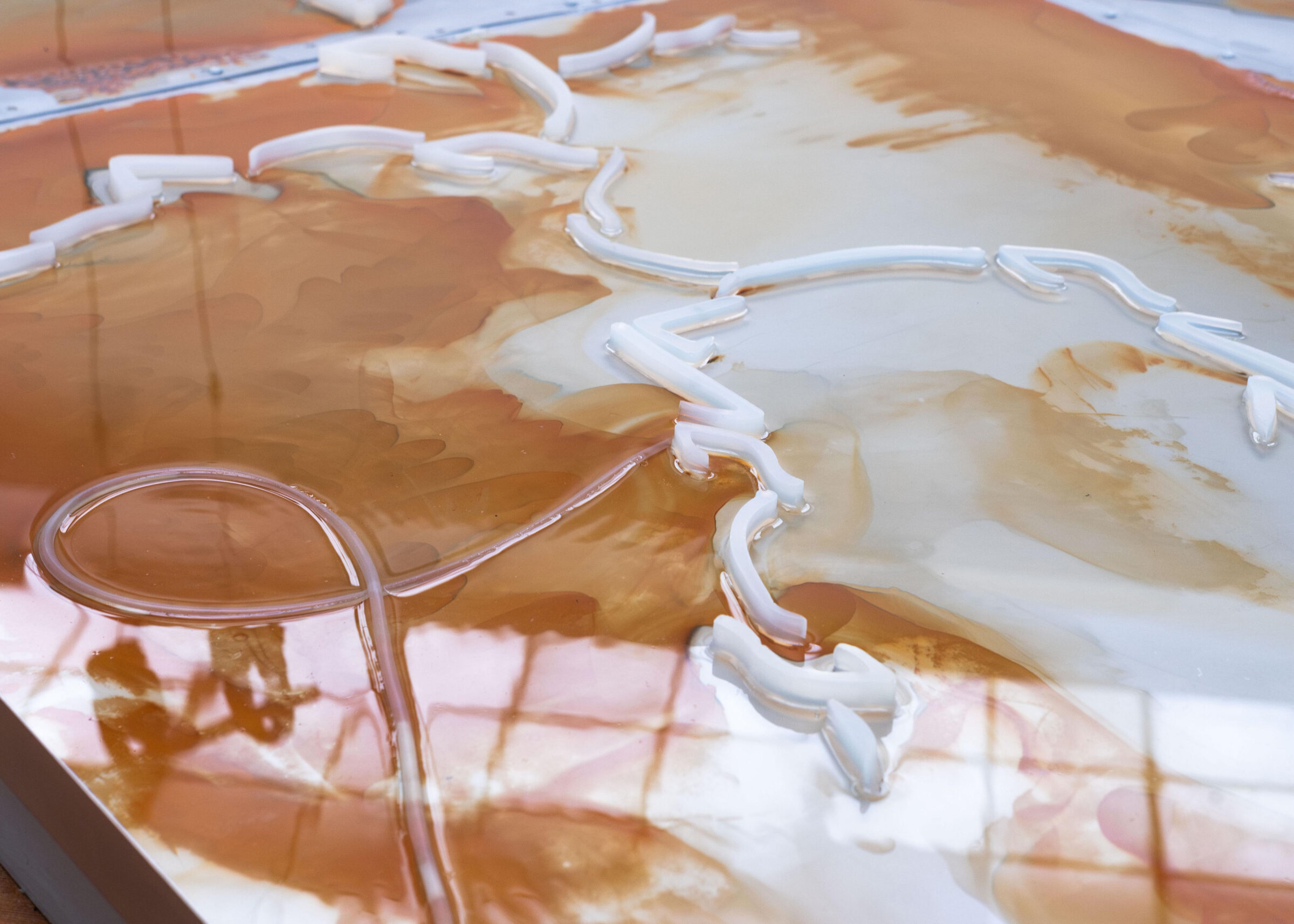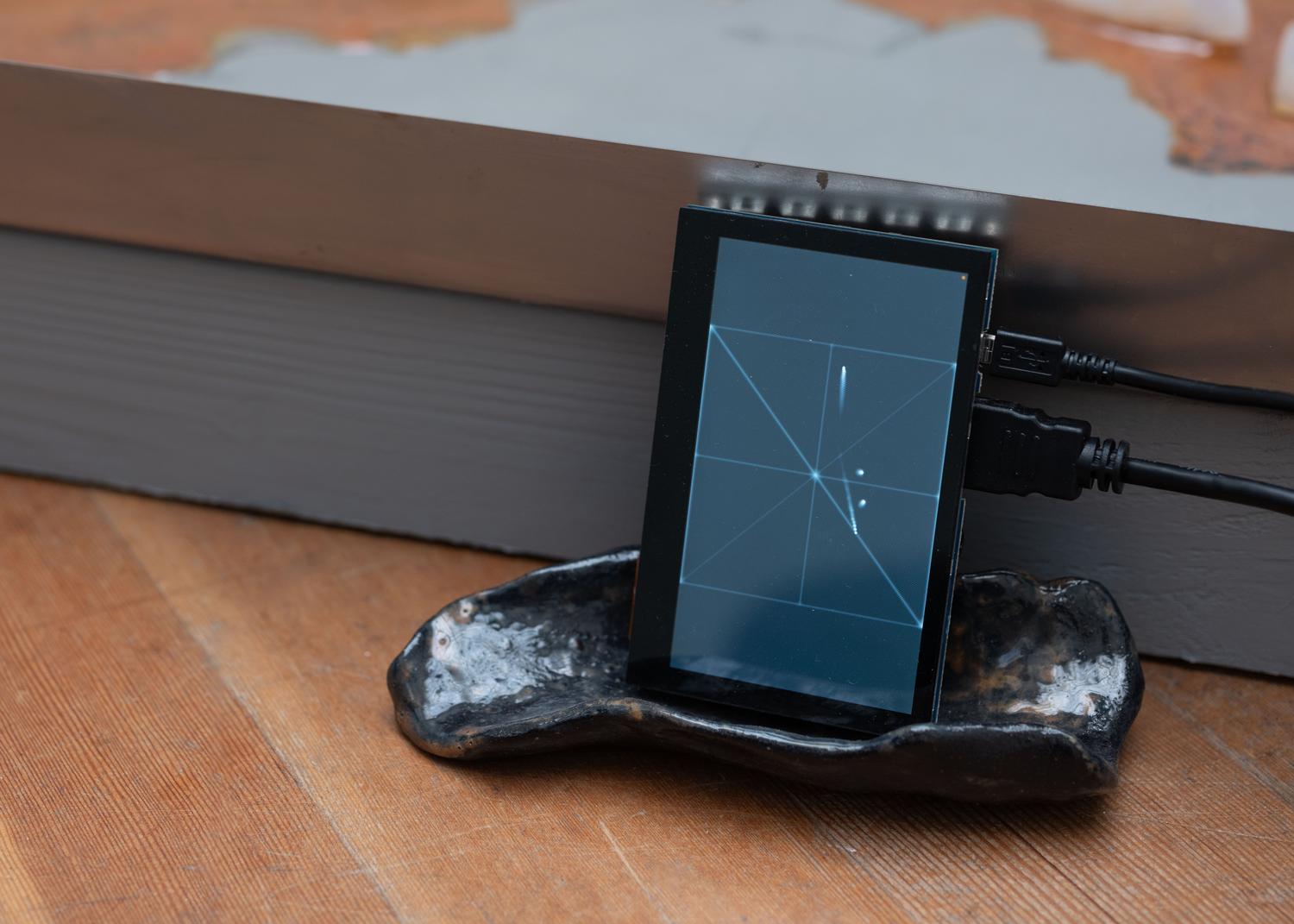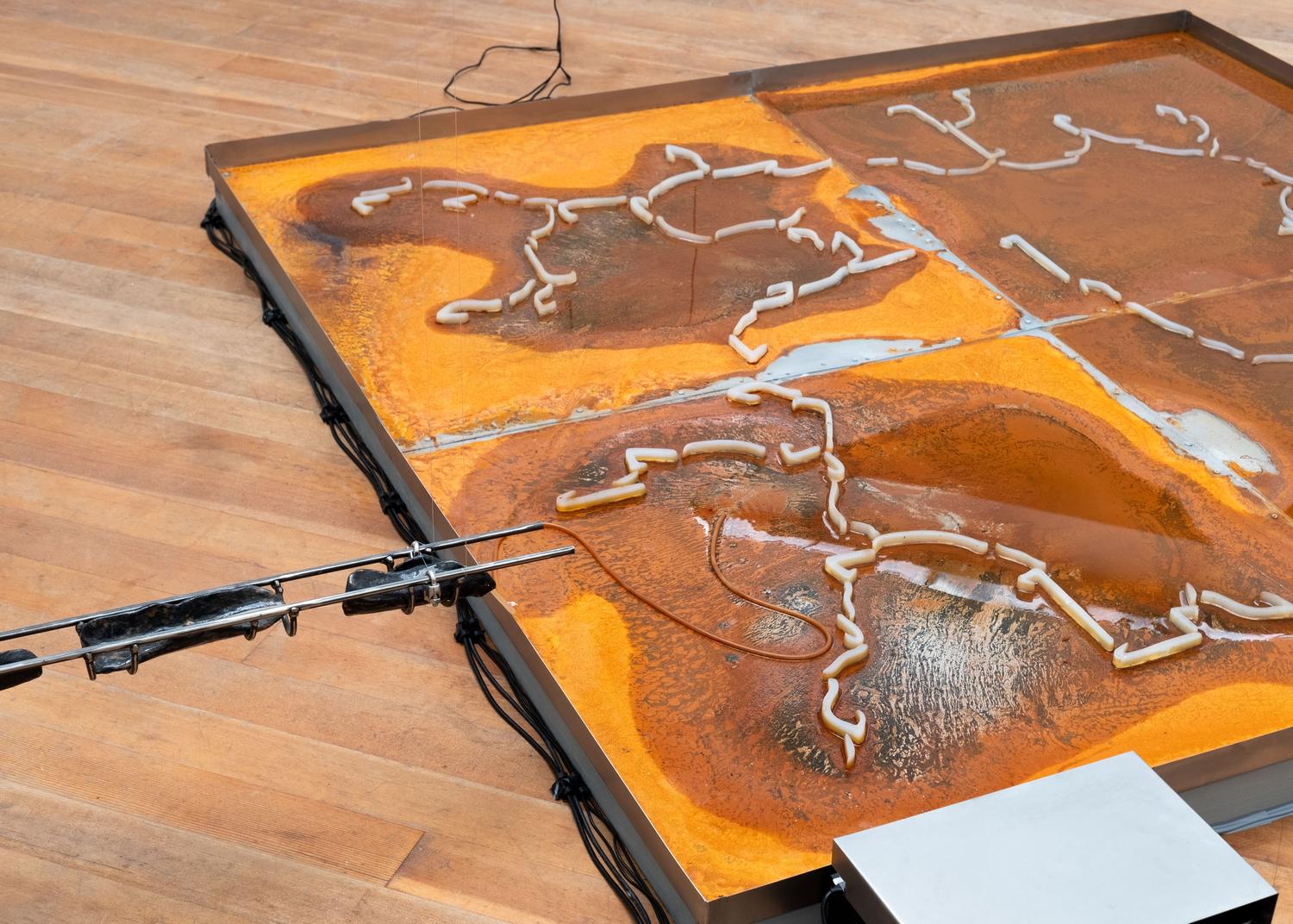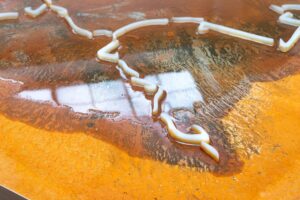In at the end of the sentence, it rotted gaat kunstenaar Cecilie Fang op onderzoek uit naar geconstrueerde talen. Van 11 januari t/m 18 januari 2025 is de kunstinstallatie en -performance te zien in ACEC Ondergronds. Op zondag 12 januari vanaf 15.00u is er een gecombineerde opening met de tentoonstelling Design with your heart… Think with your head van -SYB- in de ACEC Salon. Full English text below
at the end of the sentence, it rotted is een uitvoerende geluidsinstallatie en onderzoek naar geconstrueerde talen. Het werk reflecteert op de diasporische taalomstandigheden en wat het betekent om een taal niet te spreken. Voor een buitenstaander is het geschreven en gesproken woord niets meer dan penseelstreken en fonetiek. Een aseptische relatie, waar de betekenis van het woord ongrijpbaar blijft.
at the end of the sentence, it rotted presenteert, middels langzaam inzettend roest en verval, een zoektocht naar een taal die allesomvattend is. Het is een terugkeer naar een tijd van pre-linguïstiek, waar geluid en aanraking prominent aanwezig zijn. Een poging terug te keren naar een tijd voordat het woord de dominante communicatievorm werd.
Over Cecilie Fang
Cecilie Fang is een anti-disciplinaire kunstenaar en schrijver uit China en Denemarken, momenteel woonachtig in Den Haag. Haar werk is een doorlopend auto-etnografisch onderzoek, waarin ze machtsstructuren door en middels taal onderzoekt. Ze is geïnteresseerd in de diaspora-omstandigheden van taal en welke macht er schuilgaat achter geletterdheid en het onvermogen om te spreken.
Door middel van microperformances van materialen en hun organische processen, mediteert Fang over alternatieve manieren van ‘languaging’ (betekenisproductie beschouwend als niet vaststaand, maar open en procesgericht). Zo streeft ze ernaar werk te creëren dat speculatieve linguïstische ecosystemen onderzoekt.


About at the end of the sentence, it rotted
at the end of the sentence, it rotted is a performing sound installation and research on constructed languages. Rooted in a history of constructed languages, the installation consists of abstractions of writing systems. As water pumps in and out, the rust- and soundscape changes throughout the day and slowly decay.
The work reflects upon the diasporic conditions of language and what it means not to speak a language. As an outsider of a language, any written or spoken words are purely strokes and phonetics; an asemic relation, when you are unable to grasp the meaning of words.
Through rust and decay, ‘at the end of the sentence, it rotted’ presents an bio-asemic writing and searches for a language that includes all. It’s a return to a time of pre-linguistics, where sound and touch are prominent. To return to a time before words became the dominant way of communicating.
About Cecilie Fang
Cecilie Fang is an anti-disciplinary artist and writer from China and Denmark currently based in The Hague. Her work is a continuous auto-ethnographic research, in which she researches power structures through and with language. She is interested in the diasporic conditions of language and what power lies behind literacy and the unableness to speak.
Through microperformances of materials and their organic processes, Fang meditates on alternative ways of languaging (looking upon meaning production as not fixed, but open-ended and process-oriented) and aims to create work exploring speculative linguistic ecosystems.


